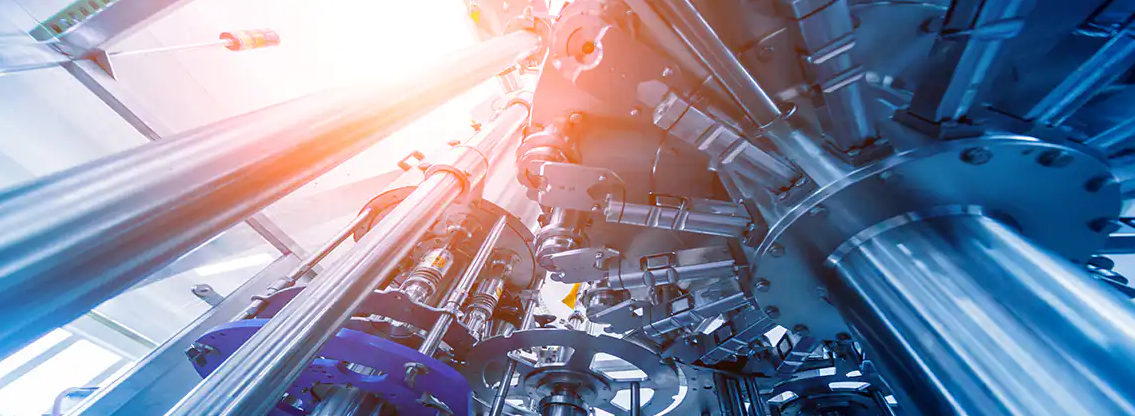Aluminum is a widely used material in various industries due to its lightweight, high strength, and excellent corrosion resistance properties. However, to further enhance its durability and resistance against corrosion, various surface treatment techniques have been developed. One such technique is aluminum conversion coating. This article will delve into the process, benefits, and applications of aluminum conversion coating in different industries.
What is Aluminum Conversion Coating?
Aluminum conversion coating is a surface treatment method that involves the formation of a thin, protective layer on the aluminum surface through a chemical reaction. This coating is typically a chromate, phosphate, or anodizing conversion layer. The conversion layer forms a strong bond with the aluminum substrate, protecting it from environmental factors such as humidity, chemicals, and abrasion.
Process of Aluminum Conversion Coating
The process of aluminum conversion coating involves several steps. Firstly, the surface of the aluminum is cleaned thoroughly to remove any dirt, oils, or oxides. This step is crucial as it ensures good adhesion of the conversion coating. The most commonly used cleaning methods include alkaline cleaning, acid cleaning, or a combination of both.
After cleaning, the aluminum surface is subjected to a chemical solution that initiates the conversion reaction. The choice of the chemical solution depends on the desired properties and end-use requirements. Chromate conversion coatings provide excellent corrosion resistance, phosphate conversion coatings enhance paint adhesion, and anodizing conversion coatings offer superior hardness and wear resistance.
The aluminum substrate is then immersed in the conversion solution for a specific period, typically ranging from a few seconds to a few minutes, depending on the desired coating thickness. During this immersion, a chemical reaction occurs between the aluminum surface and the solution, resulting in the formation of the conversion layer.
Once the desired coating thickness is achieved, the aluminum is thoroughly rinsed to remove any residual chemicals. Finally, the coated aluminum is dried or baked to ensure the conversion layer\’s complete formation and adhesion to the substrate.
Benefits of Aluminum Conversion Coating
Aluminum conversion coating offers several benefits that make it an attractive surface treatment option. Firstly, it significantly enhances the durability and corrosion resistance of aluminum. The conversion layer acts as a barrier, preventing the penetration of moisture, chemicals, and other corrosive agents.
Furthermore, aluminum conversion coating improves the adhesion of subsequent coatings, such as paints or primers. This enhanced adhesion ensures a longer lifespan of the applied coatings, reducing the need for frequent reapplication.
Additionally, aluminum conversion coating provides improved electrical conductivity and thermal resistance, making it suitable for various electrical and electronic applications. The coating can also be dyed or painted to achieve desired aesthetics, making it a versatile choice for architectural and decorative purposes.
Applications of Aluminum Conversion Coating
Aluminum conversion coating finds applications in a wide range of industries and sectors. In the automotive industry, it is used to improve the corrosion resistance of aluminum parts, such as engine components, body panels, and heat exchangers. The conversion coating also enhances the paint adhesion on these parts, resulting in a longer-lasting and more visually appealing finish.
In the aerospace industry, aluminum conversion coating is employed to protect aircraft structures and components from the harsh and corrosive environment. The coating extends the lifespan of the aircraft and reduces maintenance requirements.
Moreover, aluminum conversion coating is extensively used in the construction industry for architectural applications. It provides a protective layer on aluminum windows, doors, and claddings, ensuring their longevity and resistance against corrosion.
Conclusion
Aluminum conversion coating is a valuable surface treatment technique that significantly enhances the durability and corrosion resistance of aluminum. The process involves the formation of a protective conversion layer through a chemical reaction. The benefits of aluminum conversion coating include improved corrosion resistance, enhanced adhesion of subsequent coatings, and versatility for various applications. Industries such as automotive, aerospace, and construction extensively utilize this coating to improve the lifespan and performance of aluminum components.
-

- Bahagian & komponen tuangan mati yang dibuat khas untuk garpu ampaian basikal untuk MTB
-

- Borong Magnesium Alloy Baby Cycle Untuk 3 Hingga 5 Tahun Kitaran Kanak-Kanak 12 Inci OEM Murah
-

- Integrated 3-spoke wheel for MTB with CNC machining &surface treatment
-

- Magnesium alloy die-casting auto parts center control cover
-

- Magnesium aloi die-casting garpu tegar untuk basikal
-

- Magnesium thixomolding parts UAV housing

 0086-750-5616188
0086-750-5616188 +86 13392089688
+86 13392089688 sales@zhongmei-tech.com
sales@zhongmei-tech.com








